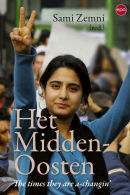(14-05-2013) USAID: Missionaries of US Imperialism
(14-05-2013) Iraq's invisible refugee crisis
(27-05-2013) Why Maliki Must Go
(17-05-2013) Sectarianism in Iraq stoked by Syrian war
(16-05-2013) Baghdad market attacks, shootings in north kill 17
(16-05-2013) Baghdad market attacks, shootings in north kill 17
(20-04-2013) Diyala’s Blood is Our Blood - Friday 19 April 2026
(25-04-2013) Iraq: Executions Surge but No Action on Reform
(24-04-2013) Shawki Omar, U.S. citizen held in Iraq prison, abused and discriminated against, wife ...
(04-04-2013) GICJ Strongly Condemns Recent Executions in Iraq
(03-05-2013) The State of Torture in America
(25-04-2013) Iraq: Executions Surge but No Action on Reform
(24-04-2013) Shawki Omar, U.S. citizen held in Iraq prison, abused and discriminated against, wife ...
(04-04-2013) GICJ Strongly Condemns Recent Executions in Iraq
(14-05-2013) Al-Maliki is directing Iraq to war once again
(14-05-2013) JFO: Press freedom is the worst in Iraq
(14-05-2013) Iraq's invisible refugee crisis
(01-05-2013) Ataque inminente a Ramadi
(01-05-2013) Hawija investigation results revealed
(14-05-2013) Al-Maliki is directing Iraq to war once again
(14-05-2013) Iraq's invisible refugee crisis
The BRussells Tribunal is independent and wants to remain independent.
The BRussells Tribunal is an activist think tank and peace organisation with a special focus on Iraq. Read more...



 The times they are a-changin' is het eerste grondige Nederlandstalig overzicht dat voorbij oppervlakkigheden en algemeenheden wandelt, en ook nog eens de hele regio bestrijkt, van Egypte en Tunesië tot Marokko, Libië, Syrië, Libanon, Palestina, Jemen, Jordanië, Irak, Bahrein en Israël. Daar bestaat een woord voor: een standaardwerk.
The times they are a-changin' is het eerste grondige Nederlandstalig overzicht dat voorbij oppervlakkigheden en algemeenheden wandelt, en ook nog eens de hele regio bestrijkt, van Egypte en Tunesië tot Marokko, Libië, Syrië, Libanon, Palestina, Jemen, Jordanië, Irak, Bahrein en Israël. Daar bestaat een woord voor: een standaardwerk.